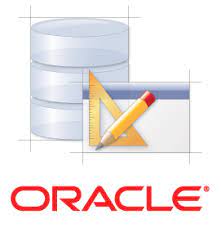Building an application forces you to overcome a plethora of hurdles. Every environmental stage requires careful planning and execution, from development to production. If you are not being careful, you will face significant problems in the future. It is not possible to make no mistakes while developing an application. We’re all humans, after all. However, you can always try to reduce the number of problems you will face. You need to keep yourself updated and learn all the new ways to improve your development strategies.

Developing an application is difficult. There’s no doubt about it. Many developers sense this problem and even created apps to help with such problems. Today, we will also be helping you with some tips that will improve your workflow if you include them in your next project. If you are searching for tips to improve your next Oracle Apex project, this might be the article for you. Here’s what a perfect Oracle Apex project will include.
Project methodology
The project methodology is a set of guidelines for developers to plan, manage, and execute projects. They essentially help in completing a project on time and also on budget. In addition, a good project methodology allows for improved communication between the developers. It does that by ensuring each member is aware of their responsibilities and roles in the project.
There are four main project methodologies that you can consider: agile, scaled agile, waterfall, and kanban. These methodologies will provide a project planning, execution, and control structure. If your development platform is Oracle Apex, you might want to use the agile methodology as it works best with the low-code development platform. It allows you to make changes quickly and more easily. Requirements can be quickly gathered and then integrated into the application. Rapid feedback and adaptation are also a big feature of agile methodology.
Technical documentation
Technical documentation refers to a brief description of the code you’re writing for the application. Most developers consider documentation a hassle and skip over this part only to spend hours of their time trying to figure out what the hell is happening. Code documentation is taught to developers as one of the most basic techniques. As a result, as we start coding, we don’t feel the need to document the code. However, this habit builds up when we write actual application code and can prove fatal.
You should document the code while you’re writing it, as you will be able to give a proper description right then only. You should not only document the code you’re writing, but logging changes is also very effective. Your documentation should be brief. You don’t need to explain each and every line of code. You can take the documentation one step further and compile all the necessary project assets like code repos, JIRA boards, etc.
Leveraging DevOps and CI/CD
DevOps is a combination of tools that helps you, an organization, deliver applications at high velocity. You can’t use traditional software development and infrastructure management processes to stay competitive. DevOps, along with CI/CD, which stands for continuous integration and continuous development, tools can help with application development a lot. Continuous integration means developers should build and deploy codes as often as possible. At the same time, ongoing development allows you to automate the infrastructure provisioning and application release process.
DevOps and CI/CD help create automated general and specific automated tasks, making them highly efficient. If DevOps is done right, then the speed and stability of deployments go up by a lot. This new development field has been very successful in the past few years, and many experts say that it will be the future of application deployment.
Source control
Almost every developer has once in their lifetime used a database as their code repository instead of a real repository like GitHub. Using a database as the code repository may be acceptable for storage purposes, but it doesn’t include many essential features that a professional code repository should include. What you need to do is, learn how to use a code repository and also ask your fellow developer to follow the same procedure.
There are many code repositories out there, and most good ones include features that developers need regularly. It would be best if you were looking for a repository that allows you to go back in time and see how your code has changed. You can also track the changes in your code along with identifying the developer who made the change. In the end, you can also merge the code of your development team into a single project.
Following development standards
Although most companies follow some development standards, adhering to and following these standards is more complex than you think. Initially, you need to decide on coding standards if you don’t have one. The standards should be viable, like all pages having authorization schemes, all items having help text, and ensuring special characters are escaped.
Oracle Aex development standards and best practices are a great option if you can’t decide on a standard. It allows you to create scalable, secure, and visually appealing applications. After selecting the standards, you need to ensure that all your developers are following the development standards, not just writing code that will pose problems in the future. Development standards are there to keep everything organized, and in a way everyone can understand. No one wants to bug others to explain every little line of code and its structure.
Conclusion
Apart from the tips that we mentioned, there are a lot more things that you can do to make your project nearly perfect. SQL and PL/SQL standards, SQL and PL/SQL testing, error management/code instrumentation, auditing, and security scanning are just some examples. You can take the help of apps and other utilities to keep everything in check. If you are able to include these strategies in your development planning, your project is sure to go smoothly and efficiently.





